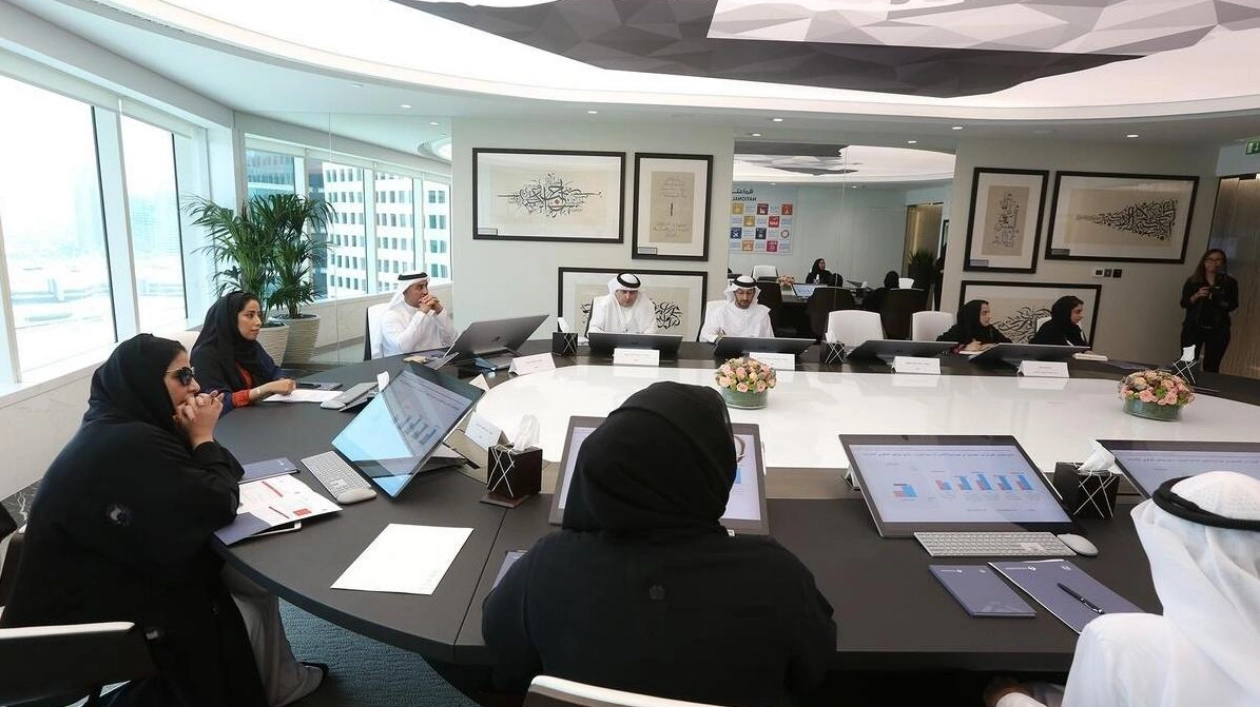A UAE Gender Balance Council meeting in progress. Image for illustrative purposes only. — File photo
Beginning January 2025, all private joint stock companies in the UAE are required to allocate at least one board seat to women, following the conclusion of their current board terms. This mandate extends a 2021 directive for public joint stock companies and aligns with the UAE Gender Equality Council's objective of achieving 30% female representation on corporate boards by 2025. As Abdulla bin Touq Al Marri, Minister of Economy, emphasized, this initiative underscores the nation’s dedication to “enhancing gender balance, empowering women in the business sector, and increasing their presence in leadership and decision-making roles.” Early outcomes from public companies have demonstrated positive effects, including improved institutional performance and economic results. The UAE has also seen an upward trend in the Gender Inequality Index (SDP 5) for the United Nations Development Program.
Sheikha Manal bint Mohammed bin Rashid Al Maktoum highlighted: “Our wise leadership’s unwavering commitment and support for gender balance, along with their eagerness to enhance women’s representation across economic, political, and social domains through pioneering legislation and initiatives, have made this exceptional achievement possible.” It is also noteworthy that women in the UAE significantly influence consumer spending, driving approximately 80% of all consumer purchases. However, merely increasing the number of women on boards is insufficient to create lasting, meaningful change and maximize benefits. It is crucial that their voices are empowered, heard, and strengthened in boardrooms.
Dr. Najat Benchiba-Savenius, a prominent advisor to UAE, Saudi, and GCC businesses and Family Offices, asserts that this is an “excellent direction by the UAE leadership and necessitates an urgent need for UAE businesses to mobilize to meet this target — but it must be done on meritocracy, not tokenism.” Although women held 77 board seats, representing 8.9% of the 868 seats across 115 UAE-listed companies in 2022, substantial work remains. True success will not come from meeting quotas alone; boards must ensure female members contribute fully and effectively to decision-making. Alison Reynolds, a DE&I researcher, warns that “quotas often risk having a detrimental impact — where females fail to speak up out of fear, disempowerment, or lack of experience.” UAE executives must avoid this pitfall.
In light of this mandate, there are three key recommendations for UAE organizations aiming to maximize the value in the boardroom:
1) Hear the voice: Build a culture that supports diverse contributions. Merely having women in the boardroom isn’t enough. Their voices must be respected, heard, and integrated into decision-making processes. Boards must actively cultivate a culture that encourages inclusive participation, starting with an honest reflection on board culture and authentic board recruitment.
2) Enable the voice: Support female board members’ transition into their roles. Being an effective board member requires more than attending meetings and reviewing minutes. Organizations should invest in mentoring, transition coaching, and skill development for new board members, including training on corporate governance responsibilities, navigating board politics, and developing the influence necessary to shape board decisions.
3) Strengthen the Voice: Build a pipeline of future female leaders. While meeting the immediate requirements of the mandate is important, UAE organizations must also look to the future. The pool of qualified female board candidates is currently limited, with many potential candidates nearing the end of their careers. Organizations should actively identify female talent early, creating opportunities for shadowing current board members, establishing mentorship programs, and encouraging leadership development.
In conclusion, the UAE’s mandate to increase female representation on boards is a positive and important step. To unlock the real success and benefits, it depends on more than meeting quotas. As Abdulla bin Touq Al Marri, Minister of Economy, aptly stated: “Over the past decades, women in the UAE have consistently proven their capabilities, making significant contributions to the business, financial, and investment sectors. Today, they are indispensable partners in economic growth and vital to the UAE’s global competitiveness.” However, a concerted effort is needed to cultivate board dynamics and culture, support new appointees, and invest in a long-term pipeline of female talent, so this unique mandate can be championed to develop merit-worthy diversity in the boardroom for generations to come.
Source link: https://www.khaleejtimes.com






